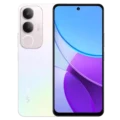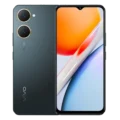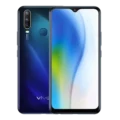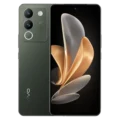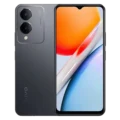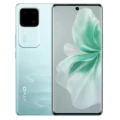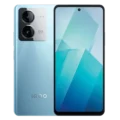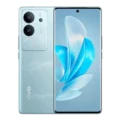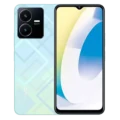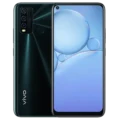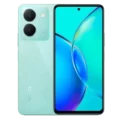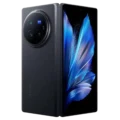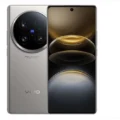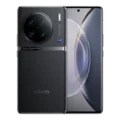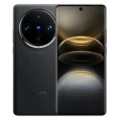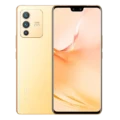- All Products
- Smartphones
- Vivo NEX 3 5G (256GB) Price in Bangladesh, Specs & Review
Vivo NEX 3 5G (256GB) Price in Bangladesh, Specs & Review
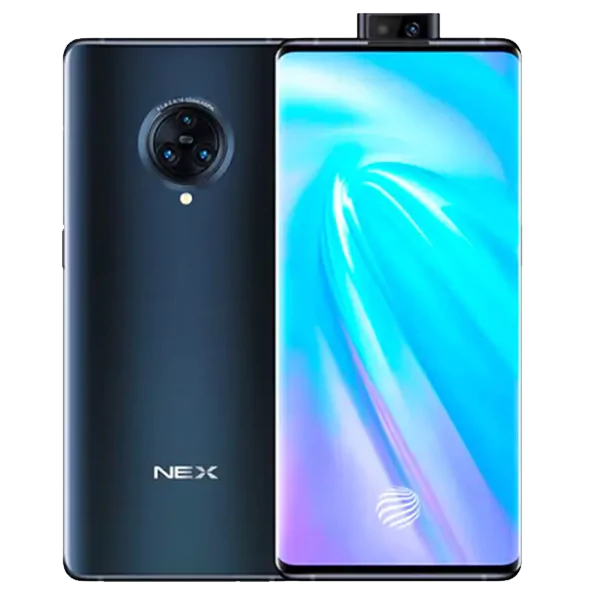


-
CPU: Octa core (2.96 GHz, Single core, Kryo 485 + 2.42 GHz, Tri core, Kryo 485 + 1.8 GHz, Quad core, Kryo 485)
-
RAM: 8 GB
-
Storage: 256 GB
-
Display: Super AMOLED, 6.89 inches (17.5 cm)
-
Camera: 64+13+13MP / 16MP
-
OS: Android v10
Vivo NEX 3 5G (256GB) Overview
Vivo NEX 3 5G (256GB) Price in Bangladesh is ৳.70,000 (Unofficial) for its 8GB RAM & 256GB Internal Storage variant. The Vivo NEX 3 5G (256GB), released on September 5, 2019, stands out as a premium smartphone with powerful performance, a unique waterfall display, and 5G connectivity.
Vivo NEX 3 5G (256GB) – Full Specifications
General Information
| Feature | Details |
|---|---|
| Brand | Vivo |
| Model | NEX 3 5G (256GB) |
| Device Type | Smartphone |
| Release Date | September 5, 2019 |
| Status | Available |
Hardware & Software
| Feature | Details |
|---|---|
| Operating System | Android v10 (upgradable) |
| User Interface (UI) | Funtouch OS |
| Chipset | Qualcomm Snapdragon 855 Plus |
| CPU | Octa-core (2.96 GHz Single-core Kryo 485 + 2.42 GHz Tri-core + 1.8 GHz Quad-core) |
| CPU Cores | 8 Cores |
| Architecture | 64-bit |
| Fabrication Process | 7 nm |
| GPU | Adreno 640 |
Display
| Feature | Details |
|---|---|
| Display Type | Super AMOLED |
| Screen Size | 6.89 inches (17.5 cm) |
| Resolution | 1080 x 2256 pixels (FHD+) |
| Pixel Density | 363 ppi |
| Screen-to-Body Ratio | 93.79% |
| Screen Protection | Gorilla Glass |
| Bezel-less Design | Yes, with Waterfall Display |
| Touchscreen | Capacitive, Multi-touch |
| Notch | Waterdrop Notch |
Cameras
Primary Camera (Rear)
| Feature | Details |
|---|---|
| Camera Setup | Triple Camera Setup |
| Resolution | 64 MP (f/1.8) + 13 MP (f/2.2 Ultra-Wide) + 13 MP (f/2.4 Telephoto) |
| Autofocus | Phase Detection Autofocus (PDAF) |
| Flash | LED Flash |
| Zoom | 2x Optical Zoom |
| Image Resolution | 9000 x 7000 pixels |
| Shooting Modes | HDR, Continuous Shooting |
| Camera Features | Auto Flash, Face Detection, Touch to Focus |
| Video Recording | 4K (3840 x 2160) @ 30fps, 1080p @ 30/60/120fps, 720p @ 960fps |
| Video Stabilization | Electronic Image Stabilization (EIS) |
Selfie Camera (Front)
| Feature | Details |
|---|---|
| Camera Setup | Single Camera |
| Resolution | 16 MP (f/2.0) |
| Flash | LED Flash |
| Video Recording | 4K (3840 x 2160) @ 30fps, 1080p @ 30fps |
Design & Build
| Feature | Details |
|---|---|
| Height | 167.4 mm |
| Width | 76.1 mm |
| Thickness | 9.4 mm |
| Weight | 218.5 grams |
| Build Material | Aluminum Frame |
| Colors Available | Black, Blue |
Battery
| Feature | Details |
|---|---|
| Battery Type | Lithium-Polymer (Li-Poly) |
| Capacity | 4500 mAh |
| Fast Charging | 44W Wired Charging |
| Charging Port | USB Type-C 2.0 |
| Battery Placement | Non-removable |
Memory & Storage
| Feature | Details |
|---|---|
| Internal Storage | 256 GB |
| Storage Type | UFS 3.0 |
| RAM Capacity | 8 GB |
| RAM Type | LPDDR4X |
| Expandable Memory | No |
| USB OTG Support | Yes |
Network & Connectivity
| Feature | Details |
|---|---|
| Network Support | 2G, 3G, 4G, 5G |
| SIM Slot Type | Dual SIM (Nano + Nano) |
| VoLTE Support | Yes |
| Wi-Fi | Wi-Fi 4 (802.11 b/g/n 5GHz) |
| Bluetooth | v5.0 |
| GPS | A-GPS, GLONASS |
| NFC | Yes |
| USB Type | Mass Storage, USB Charging |
| Wi-Fi Hotspot | Yes |
Sensors & Security
| Feature | Details |
|---|---|
| Fingerprint Sensor | Yes, Optical (On-screen) |
| Face Unlock | Yes |
| Other Sensors | Light Sensor, Proximity, Accelerometer, Compass, Gyroscope |
Multimedia & Audio
| Feature | Details |
|---|---|
| Loudspeaker | Yes |
| Audio Jack | 3.5 mm |
| Video Playback | 4K @ 30fps, 1080p @ 30/60/120fps, 720p @ 960fps, gyro-EIS |
Specs
General
| Device Type | Smartphone |
| Model | Vivo NEX 3 5G (256GB) |
| Released | 05 September, 2019 |
| Status | Available |
| Price | ৳.70,000 (Unofficial) |
Hardware
| Chipset Chipset is a group of integrated circuits designed to perform one or a more dedicated functions, often with real time computing constraints, Popular smartphones are equipped with more advanced embedded chipsets that can do many different tasks depending on their programming. | Qualcomm Snapdragon 855 Plus |
| CPU CPU (Central Processing Unit) mostly known as processors, CPU processes instructions in order to carry out certain functions that make your device operate properly. Processors are often described as the brain of computers, smartphones and tablets, Smartphones and tablets rely on processors to carry out their every task, Processors are an incredibly important factor in selecting any type of computing device, including your smartphone. | Octa core (2.96 GHz, Single core, Kryo 485 + 2.42 GHz, Tri core, Kryo 485 + 1.8 GHz, Quad core, Kryo 485) |
| GPU GPU (Graphics Processing Unit) is a single-chip processor designed to rapidly manipulate and alter memory to accelerate the creation of images in a frame buffer intended for output to a display, This includes things such as lighting effects, object transformations, and 3D motion. | Adreno 640 |
| RAM (Memory) RAM (Random Access Memory) is a type of computer memory that can be accessed randomly, any byte of memory can be accessed without touching the preceding bytes that allows information to be stored and accessed quickly from random locations. RAM is the most common type of memory found in computer systems, smartphones, tablets and other electronic devices. | 8 GB |
| Internal Storage Internal Storage is a data storage space (flash memory) mostly used in smartphones, tablets and other electronic devices where operating system, apps, music, photos, videos, files and other user data Is stored. | 256 GB |
| Card Slot Memory Card Slot is a special slot for inserting a memory card. Memory cards allow you to expand the phone's built-in memory, A memory card (sometimes called a flash memory card or a storage card) is a small storage medium used to store data such as text, pictures, audio, and video, for use on small, portable or remote computing devices such as mobile phones, mp3 players, digital cameras. | 2 Nano Card Slots + 1 Micro SD Slot |
| Sensors Sensors are electronic components that detects and responds to some type of input from the physical environment. The specific input could be light, heat, motion, moisture, pressure and location, The output is generally a signal that is converted to use in computing systems, a location sensor, such as a GPS receiver is able to detect current location of your electronic device. | Includes all essential sensors like accelerometer, proximity sensor, and ambient light sensor |
Display
| Display Type Display Technology => A number of display technologies and types used in mobile phones => TFT (Thin Film Transistor), IPS (In-Place Switching), OLED (Organic Light Emitting Diode), AMOLED (Active-Matrix Organic Light-Emitting Diode), Super AMOLED (an even advanced version of AMOLED), Resistive Touchscreen (Resistive touchscreens contain two layer of conductive material with a very small gap between them which acts as a resistance), Capacitive Touchsceen (Capacitive touchscreen technology consists of a layer of glass coated with a transparent conductor) | Super AMOLED |
| Size | 6.89 inches (17.5 cm) |
| Resolution | 1080x2256 px (FHD+) |
| Pixel Density Pixel Density (PPI) is refers to the concentration of pixels on a particular display, measured in pixels per inch (ppi). Pixel density is calculated by dividing the diagonal pixel resolution of a display by its diagonal size, higher pixel density better display quality. | 363 ppi |
| Display Protection Display Protection => Gorilla Glass is a special alkali-aluminosilicate glass shield with exceptional damage resistance that helps protect mobile displays from scratches, drops, and bumps of everyday use, It is always better to go for a smartphone with Gorilla Glass for that added protection and peace of mind. | Gorilla Glass |
| Notch | Waterdrop |
Camera
| Primary Camera is able to capture photographs and usually videos, The most important characteristics of a camera are the resolution (measured in megapixels), lens focus type (fixed or automatic), higher megapixel cameras are known to capture higher quality photos, but not always a good measurement of the photos quality. | Triple, 64 MP f/1.8, Primary Camera, 13 MP f/2.2, Ultra-Wide Angle Camera, 13 MP f/2.4, Telephoto Camera |
| Image | 9000 x 7000 Pixels |
| Video | 3840x2160, 1920x1080 |
| Camera Features | Auto Flash, Face detection, Touch to focus, Digital Zoom, Auto Flash, Filters, Continuous Shooting, High Dynamic Range mode (HDR) |
| Flash Flash Light => There is commonly two types of flash lights are used in camera mobile phones, LED Flash (LED flash offers lower power consumption with drive circuitry that takes up very little room, LEDs can be strobed faster than any other light source), Xenon Flash (xenon flash produces an extremely intense full-spectrum white light for a very short duration) | LED Flash |
| Secondary | Single, 16 MP f/2.0, Primary Camera |
Design
| Type | Bar |
| Dimensions | 167.4 x 76.1 x 9.4 mm |
| Weight | 218.5 grams |
| Build | Aluminum frame |
| Colors | Black, Blue |
Battery
| Battery Type Battery Type => Cell phones run on various kinds of batteries depending on the manufacturer, phone size or shape and features. There are basically four types of cell phone batteries => Lithium Polymer, Lithium Ion, Nickel Metal Hydride and Nickel Cadmium. | Li-Poly (Lithium Polymer) |
| Capacity Battery Capacity is a measure (typically in Amp-hr) of the charge stored by the battery, and is determined by the mass of active material contained in the battery. The battery capacity represents the maximum amount of energy that can be extracted from the battery under certain conditions. | 4500 mAh |
| Placement | Non-removable |
| Charging Standby Time is the total amount of time that you can leave your is fully charged, turned on and ready to send and receive calls or data transmissions before completely discharging the battery. | 44W wired |
| Charger Type Talk Time is the longest time that a single battery charge will last when you are constantly talking on the phone under perfect conditions, Ambient temperature and highly dependent on the cellular network environment such as the distance to the closest cell network tower. | USB Type-C 2.0 |
Memory
| RAM (Memory) RAM (Random Access Memory) is a type of computer memory that can be accessed randomly, any byte of memory can be accessed without touching the preceding bytes that allows information to be stored and accessed quickly from random locations. RAM is the most common type of memory found in computer systems, smartphones, tablets and other electronic devices. | 8 GB |
| RAM Type | LPDDR3 SDRAM |
| RAM Slots | 1 Slot |
Network
| Network | 2G, 3G, 4G, 5G |
| SIM SIM (Subscriber Identity Module) is a small card that contains mobile network subscriber's account information. This allows the phone using the card to attach to a mobile network. The SIM card is most commonly associated with GSM and UMTS mobile networks. Moving a SIM card from one phone to another allows a subscriber to switch mobile phones without having to contact their mobile network carrier. SIM cards can also be used by a phone to store limited amounts of data, such as phone numbers and text messages. | Nano SIM |
| Dual SIM | Dual SIM, GSM+GSM |
Connectivity
| Bluetooth Bluetooth is a wireless communications technology for exchanging data between mobile phones, headsets, computers and other network devices over short distances without wires, Bluetooth technology was primarily designed to support simple wireless networking of personal consumer devices. | v5.0 |
| VoLTE Infrared connectivity is an old wireless technology used to connect two electronic devices. It uses a beam of infrared light to transmit information and so requires direct line of sight and operates only at close range. | |
| Wi-fi Wi-Fi is a popular wireless networking technology using radio waves to provide high-speed network connections that allows devices to communicate without cords or cables, Wi-Fi is increasingly becoming the preferred mode of internet connectivity all over the world. | Wi-Fi 4 (802.11 b/g/n) 5GHz |
| Wi-fi Hotspot | |
| USB | Mass storage device, USB charging |
| GPS GPS The Global Positioning System is a satellite-based radio navigation system, GPS permits users to determine their position, velocity and the time 24 hours a day, in all weather, anywhere in the world, In order to locate your position, your device or GPS receiver must have a clear view of the sky. | Yes with A-GPS, Glonass |
| EDGE EDGE (Enhanced Data GSM Environment) is a wireless network technology generally considered the next step in the 2G network offers data transfer rates up to four times faster than ordinary GSM networks, Generally, EDGE is used for the purpose of wireless data transfer, such as sharing pictures and videos or browsing the Internet via a mobile phone connection. | |
| GPRS GPRS (General Packet Radio Service) is a packet oriented mobile data service on the 2G and 3G cellular communication system's global system for mobile communications (GSM), Generally, GPRS is used for the purpose of wireless data transfer, such as sharing pictures and videos or browsing the Internet via a mobile phone connection. |
Reviews
Disclaimer Note
Disclaimer: Vivo smartphones price in Bangladesh is daily updated from the official brand pages, Local Shops and Dealers. We do not guarantee that the information on our page is 100% accurate (Human error is possible). Always try to visit Official Brand Pages, Local Shops and Dealers for exact price & information.

